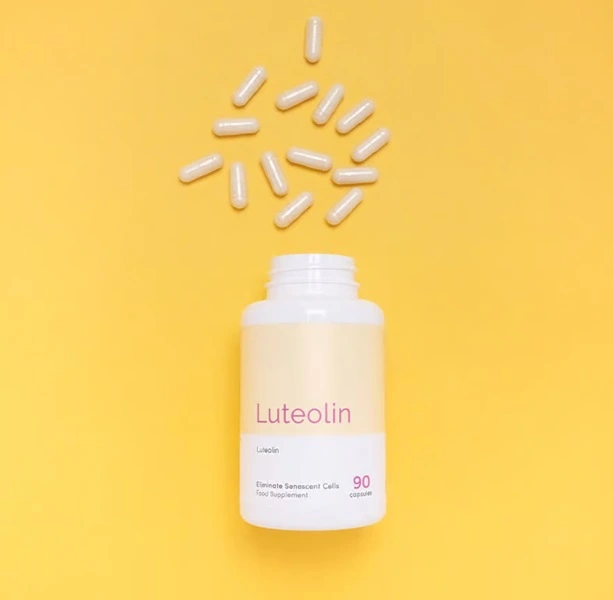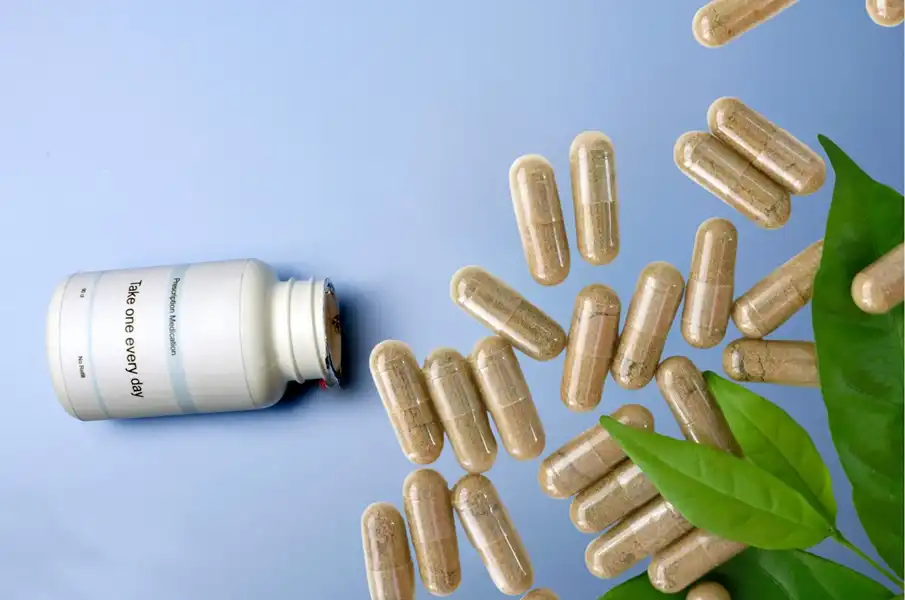Luteolin Supplements: A Comprehensive Guide
Luteolin, a powerful flavonoid found in various fruits, vegetables, and herbs, has garnered attention for its potential health benefits. This comprehensive guide delves into the world of luteolin supplements, exploring their uses, dosages, and considerations for those interested in incorporating them into their wellness routine.
Best Luteolin Supplements for Daily Use
When it comes to choosing luteolin supplements, quality and purity are paramount. Here are some top options to consider:
Pure Luteolin Powder
For those who prefer flexibility in dosing, pure luteolin powder offers versatility. It can be mixed into beverages or added to food, allowing for precise control over intake. When selecting a powder, look for products that are third-party tested for purity and potency.
Luteolin Capsules
Capsules provide a convenient, pre-measured dose of luteolin. They're ideal for those who value simplicity and consistency in their supplement regimen. Opt for capsules that contain minimal additional ingredients to ensure you're getting the most luteolin per serving.
Luteolin-Rich Herbal Blends
Some supplements combine luteolin with other beneficial herbs and compounds. These blends may offer synergistic effects, potentially enhancing the overall benefits. Look for formulations that include natural sources of luteolin, such as chamomile or celery seed extract.
Liposomal Luteolin
Liposomal delivery systems encapsulate luteolin in tiny lipid bubbles, potentially improving absorption. This advanced formulation may be particularly beneficial for those seeking maximum bioavailability from their supplement.
Luteolin-Quercetin Combinations
Some products combine luteolin with quercetin, another flavonoid with complementary properties. This pairing may offer enhanced antioxidant and anti-inflammatory effects compared to luteolin alone.
When selecting a luteolin supplement, consider factors such as purity, dosage, and any additional ingredients. It's also crucial to choose products from reputable manufacturers that adhere to Good Manufacturing Practices (GMP).

Dosage and Side Effects of Luteolin
Understanding the proper dosage and potential side effects of luteolin supplements is crucial for safe and effective use.
Recommended Dosage
The optimal dosage of luteolin can vary depending on individual factors and the specific health goals. Generally, dosages in studies have ranged from 50 to 300 mg per day. However, it's important to note that there is no universally established dosage, and recommendations can differ based on the form of supplement and individual needs.
Potential Side Effects
While luteolin is generally considered safe when consumed in amounts typically found in foods, high-dose supplements may cause side effects in some individuals. These can include:
- Gastrointestinal discomfort
- Headaches
- Skin rashes (in rare cases)
- Increased sensitivity to sunlight
It's worth noting that the long-term safety profile of high-dose luteolin supplements has not been extensively studied. As with any supplement, it's crucial to consult with a healthcare professional before starting a luteolin regimen, especially if you have pre-existing health conditions or are taking medications.
Interactions and Precautions
Luteolin may interact with certain medications, including:
- Blood thinners (e.g., warfarin)
- Certain chemotherapy drugs
- Medications metabolized by cytochrome P450 enzymes
Additionally, pregnant or breastfeeding women should exercise caution and consult their healthcare provider before using luteolin supplements, as the effects on fetal development and infants are not well-studied.

Who Should Consider Luteolin Supplements?
Luteolin supplements may be beneficial for certain individuals, particularly those looking to support specific aspects of their health. Here are some groups who might consider incorporating luteolin into their wellness routine:
Individuals Seeking Antioxidant Support
Luteolin is a potent antioxidant that may help combat oxidative stress in the body. People looking to bolster their antioxidant intake, especially those exposed to environmental pollutants or experiencing high levels of stress, might find luteolin supplements beneficial.
Those with Inflammatory Conditions
The anti-inflammatory properties of luteolin make it a potential ally for individuals dealing with chronic inflammatory conditions. While not a replacement for medical treatment, luteolin might offer complementary support for managing inflammation.
Cognitive Health Enthusiasts
Some research suggests that luteolin may have neuroprotective properties. Individuals interested in supporting their cognitive health and potentially reducing the risk of age-related cognitive decline might consider luteolin supplementation.
Allergy Sufferers
Luteolin's ability to stabilize mast cells may make it beneficial for those with allergies. People who experience frequent allergic reactions might explore luteolin as a natural approach to managing their symptoms.
Cancer Prevention Advocates
While more research is needed, preliminary studies suggest that luteolin may have anti-cancer properties. Individuals interested in preventive health measures might consider luteolin as part of a comprehensive approach to reducing cancer risk.
Metabolic Health Seekers
Some studies indicate that luteolin may have positive effects on metabolic health, including potential benefits for blood sugar regulation and lipid profiles. Those looking to support their metabolic health might find luteolin supplements of interest.
It's important to emphasize that while luteolin shows promise in these areas, it should not be considered a cure or replacement for medical treatment. Always consult with a healthcare professional before starting any new supplement regimen, especially if you have existing health conditions or are taking medications.

Conclusion
Luteolin supplements offer a range of potential health benefits, from antioxidant support to anti-inflammatory effects. When choosing a supplement, consider factors such as purity, dosage, and your individual health needs. As with any dietary supplement, it's crucial to approach luteolin use with caution and under the guidance of a healthcare professional.
For those interested in exploring high-quality luteolin supplements or other natural plant extracts, Yangge Biotech Co., Ltd. offers a wide range of products backed by rigorous quality standards. To learn more about our offerings and how they can support your health goals, feel free to contact us at info@yanggebiotech.com.
FAQ
Q: Can we get some samples to test before purchasing?
A: Of course, we can provide free samples of 20 to 100 grams, but the shipping cost is at the customer's expense. The shipping cost can be deducted from the next order, or the samples can be sent through your courier account.
Q: Do your products have relevant certifications?
A: Yes, our products are certified for HALAL, ISO, HACCP, Kosher, and other certifications.
Q: What is the minimum order quantity (MOQ)?
A: Small batches of samples can be customized according to your requirements.
Q: Do you offer OEM and ODM services? Can the formula be customized based on our own?
A: Of course, we provide ODM and OEM services to many customers. Our product range includes softgels, capsules, tablets, sachets, granules, and private label services. Simply contact us and let us know your requirements. Our experienced R&D team can also develop new products with specific formulas.
Please contact us to design your own branded products.
Q: How do you handle quality complaints?
A: First, we have a comprehensive quality control SOP. We provide authoritative third-party inspection reports for almost all products before shipment to minimize the possibility of quality issues. Second, we have a comprehensive return and exchange procedure. If there is a genuine quality dispute, we will strictly follow the SOP.
Q: How do you ship? How long does delivery take?
A: For small orders, we typically use DHL, UPS, EMS, FedEx, or TNT. Delivery typically takes 3-7 days. We also offer air and sea freight services. We have a strong freight forwarding team and can provide you with a one-stop service, including DDP and DDU.
Q: What are your payment terms?
A: 100% prepayment, payable by T/T, Western Union, MoneyGram, or PayPal.
Q: What is the shelf life of your products?
A: 2 years with proper storage.
Q: Is the packaging environmentally friendly?
A: We attach great importance to environmental protection and are constantly improving our product packaging. Some products are packaged in recyclable paper. Packaging materials are carefully selected to ensure product safety during transportation and storage, and to minimize environmental impact. We are committed to achieving a balance between environmental friendliness and practicality in our product packaging, and to contributing to sustainable development.
References
1. Lopez-Lazaro, M. (2009). Distribution and biological activities of the flavonoid luteolin. Mini Reviews in Medicinal Chemistry, 9(1), 31-59.
2. Seelinger, G., Merfort, I., & Schempp, C. M. (2008). Anti-oxidant, anti-inflammatory and anti-allergic activities of luteolin. Planta Medica, 74(14), 1667-1677.
3. Theoharides, T. C., Asadi, S., & Panagiotidou, S. (2012). Effect of a luteolin formulation on cognitive function and cerebral blood flow in children with autism spectrum disorders. Nutrition and Dietary Supplements, 4, 1-7.
4. Lin, Y., Shi, R., Wang, X., & Shen, H. M. (2008). Luteolin, a flavonoid with potential for cancer prevention and therapy. Current Cancer Drug Targets, 8(7), 634-646.
5. Nabavi, S. F., Braidy, N., Gortzi, O., Sobarzo-Sanchez, E., Daglia, M., Skalicka-Woźniak, K., & Nabavi, S. M. (2015). Luteolin as an anti-inflammatory and neuroprotective agent: A brief review. Brain Research Bulletin, 119, 1-11.

Based on your location and order quantity, you will have the opportunity to receive a limited time free shipping promotion!

Who we are


